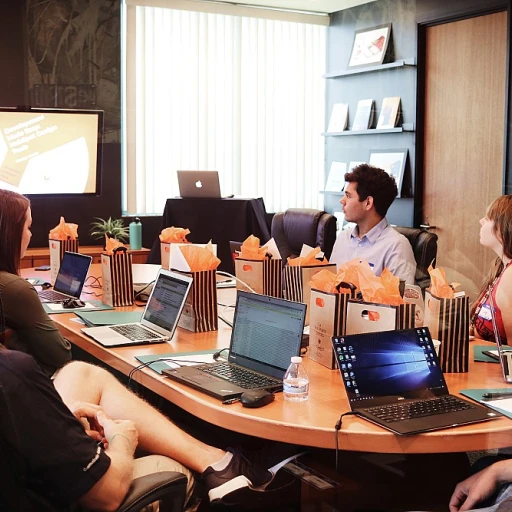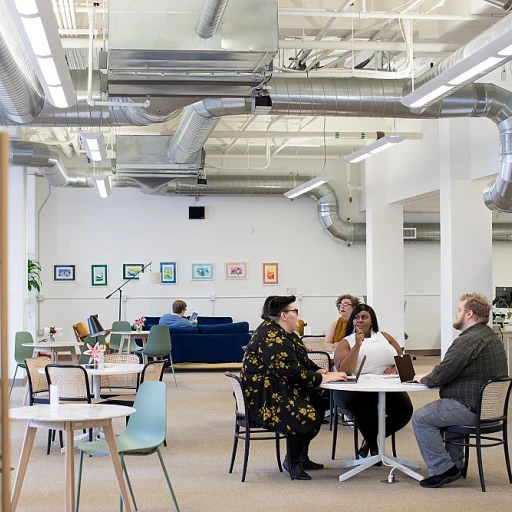
Understanding In-Camp Training
What is In-Camp Training?
In-camp training is a pivotal part of the reskilling landscape in countries like Singapore, where the Singapore Armed Forces (SAF), police force, and civil defence organizations engage their personnel in continuous learning and development. It primarily involves reservist training, often referred to as national service for NSmen, which takes place in designated training centres or military camps. The purpose is to refresh and upgrade the skills of those who have completed their full-time national service, allowing them to stay relevant in the evolving defence force.
Such training sessions are tailored to fit military and civil defence requirements, including basic military training and specialised simulations. Participants, known as reservists, are typically called back from their civilian occupations, contributing to a collective pool of knowledge and expertise that strengthens the national defence capabilities.
This approach not only benefits the SAF and the broader national defence but also provides individuals with valuable skills transferable to civilian careers, addressing loss of income concerns during training periods. Through these structured courses, service personnel can enhance their competencies in areas like Information and Communication Technology (ICT), ensuring they remain competitive in the workforce once they return to their civilian roles. For further insights, consider reading about the role of a comprehensive learning center in reskilling.
The Benefits of In-Camp Training for Reskilling
Advantages of In-Camp Training for Skill Development
In-camp training offers a unique opportunity for individuals, especially those involved in national service, to enhance their skills in a structured environment. This type of training is particularly beneficial for nsmen and reservists in Singapore, who often balance their civilian careers with military obligations. Here are some of the key benefits:
- Structured Learning Environment: In-camp training provides a focused setting where participants can immerse themselves in learning without the distractions of daily civilian life. This environment is conducive to acquiring new skills efficiently.
- Access to Specialized Resources: Training centers within camps are equipped with resources that may not be readily available in civilian settings. This includes access to advanced ICT tools and basic military training equipment, which can be pivotal for skill development.
- Integration with National Service: For those in the Singapore Armed Forces, Singapore Police Force, or Civil Defence Force, in-camp training aligns with their national service commitments. This integration ensures that skills learned are directly applicable to their roles in the defence force.
- Networking Opportunities: Participants have the chance to connect with fellow servicemen and trainers, fostering a community of learning and support. These connections can be invaluable for career advancement both within and outside the military.
- Service Pay and Benefits: While undergoing in-camp training, participants continue to receive service pay, mitigating the potential loss of civilian income during the training duration. This financial support is crucial for maintaining stability while reskilling.
In-camp training not only enhances individual capabilities but also strengthens the overall work force by equipping members with skills that are transferable to civilian careers. For more insights on how comprehensive learning centers contribute to reskilling, explore the role of a comprehensive learning center in reskilling.
Challenges Faced in In-Camp Training
Addressing the Barriers of In-Camp Training
In-camp training, while robust in its offerings, encounters several challenges that can hinder the seamless reskilling process in sectors such as ICT, defence, and national services. Understanding these barriers is crucial in ensuring the success of the training programs and making them more effective for participants. One of the primary hurdles in in-camp training, especially in regions like Singapore, is the balance between civilian obligations and training commitments. For NSmen who serve in the military or police force, the transition between civilian work and compulsory training camps such as those offered by the Singapore Armed Forces or Singapore Police can lead to inconsistencies in income and career progression. The need to apply for exit permits and manage service pay differences further complicates this balance. Moreover, the duration of training can be a significant concern, as time away from regular work duties can cause disruptions. This is particularly challenging for individuals who are engaged in full-time civilian careers but must also fulfill reservist obligations in the police or civil defence force. This disruption not only impacts their professional lives but can also lead to a loss of civilian income. Another obstacle is the limited exposure to practical skills that are in high demand today. Although the in-camp training curriculum is designed to cover basic military and defence skills, it might lack a broader focus on skills directly relevant to the current job market. In certain cases, the training doesn't fully align with the work year requirements of today's industries. The physical and psychological demands placed on participants during basic training or ORNS activities can also affect their learning capacity. Participants, classified under various PES statuses, may face challenges based on their physical readiness, which can impede their ability to fully engage in training exercises. Effective strategies must be employed to counter these challenges and optimize the training process. Comprehensive planning, better resource allocation, and collaborative efforts between military training centres and civilian employers could offer improved support to participants. Exploring the concept of effective development objectives for reskilling provides further insights into overcoming these barriers and achieving a more successful training outcome.Strategies for Successful In-Camp Training
Creating a Path to Effective In-Camp Experiences
In the dynamic world of reskilling, the process of in-camp training presents unique opportunities as well as challenges. Undertaken by nsmen who serve in various capacities within the Singapore armed forces, police force, and civil defence, these trainings are designed to upskill and enhance the readiness of personnel for national service roles. Understanding the nuances of these challenges is crucial for optimizing the in-camp training journey. Foremost among these challenges is the coordination between civilian life and military commitments. For individuals who balance full-time employment with their obligations as part of the force, adjusting to these dual roles can affect civilian income and create situations of loss income. The training, which often occurs in a training centre, can conflict with work year schedules, especially for those who hold key positions in the corporate world. The duration, basic responsibilities, and content of in-camp training may also vary depending on factors like the nsmen's PES status and the specific requirements of the saf or force scdf. The need to maintain a proficient skill set tailored to the evolving demands of military training underscores the importance of adaptable learning strategies. Another area of concern is the integration of modern ICT solutions within the camp environment. While these technologies can facilitate more effective training methods, their implementation requires careful planning and resources. However, strategies such as enhancing the quality of exit permits, creating supportive environments for ORNS activities, and ensuring adequate service pay for reservists can effectively mitigate these challenges. Aligning training with civilian work tasks offers a seamless transition between in-camp duties and external work commitments. Ultimately, successful navigation of these challenges requires continuous collaboration between the military, employers, and personnel. As international examples show, fostering a culture that supports lifelong learning in defence force contexts can empower individuals and bolster national readiness.Real-Life Success Stories
Successful Reskilling Journeys
Harnessing the potential of in-camp training can transform the reskilling landscape, especially when real-life success stories serve as inspiring testimonials to its effectiveness. In Singapore, in-camp training turns national service obligations into opportunities for skill enhancement, blending military training with professional development. One might consider the case of certain NSmen, who, during their military service camps, capitalize on the diverse training modules offered. Through the Singapore Armed Forces, personnel are not only exposed to basic military protocols but also gain vital soft skills such as leadership and teamwork, applicable in civilian life. These training sessions are crafted to accommodate various segments of the national force. For instance:- Full-time service members: Engage in foundational training that instills discipline and organizational skills crucial for any civilian career.
- Reservist personnel: Re-enter the training center several times during their work years, refining their skills consistent with evolving industry practices.













